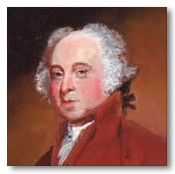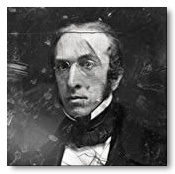Misquoting Our Founding Fathers
- TOTHESOURCE
How many times have your heard that "Our founding fathers were not Christians! They were deists!"? It is an absurd assertion.

It conjures up images of clandestine gatherings in Philadelphia's Independence Hall where one by one Washington and Jefferson and Adams et al swear allegiance to some obscure deist creed and pledge to set America on the course of eradicating Biblical belief from all corners of the land.
Sure some of our nation's founders were deists. Consider the grumpy pamphleteer Thomas Paine in The Age of Reason:
"I do not believe in the creed professed by the Jewish church, by the Roman church, by the Greek church, by the Turkish church, by the Protestant church, nor by any church that I know of...Each of those churches accuse the other of unbelief; and for my own part, I disbelieve them all."
But Paine was in the minority of founders that had a genuine antipathy to organized religion. The vast majority went on record to declare that religious faith is essential to the formation of a self-sustaining democracy.
|
|
|
|
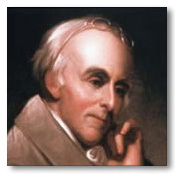
|
|
|
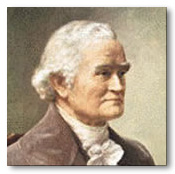
|
|
|
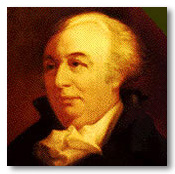
|
|
|
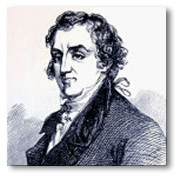
|
|
|
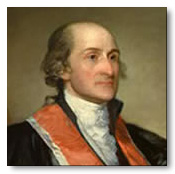
|
|
|
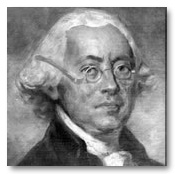
|
|
|

|
|
|
|
|
|
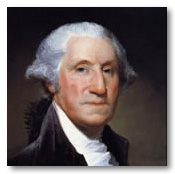
|
|
|
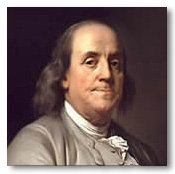
|
|
Yet the radical secularists are at it again! Their new strategy is to misrepresent the founders by misquoting them or taking quotes out of context to intentionally distort their original meaning. A good example is this oft cited quote by John Adams:
Twenty times, in the course of my late reading, have I been upon the point of breaking out, "This would be the best of all possible worlds, if there were no religion in it!!!"
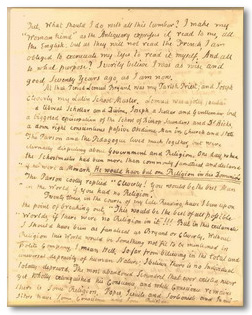
|
But this quote fragment distorts the main point Adams was making. Quoting from Adam's letter (shown below) he actually said:
Twenty times, in the course of my late reading, have I been upon the point of breaking out, "This would be the best of all possible worlds, if there were no religion in it!!!" But in this exclamatic I should have been as fanatical as (Parson) Bryant or (Pedagogue) Cleverly. Without religion this world would be something not fit to be mentioned in polite company, I mean Hell. (emphasis added)
The founders did not want an established national religion. That's it. They allowed for state established religions. They encouraged the expression of religious faith. And they almost universally sought to encourage religious belief as essential for good governance and citizenship.
Madison sums it up nicely. In his letter to Rev. Jasper Adams in the spring of 1832, Madison once again makes his position regarding the government's proper role quite clear:
"(I)t may not be easy, in every possible case, to trace the line of separation between the rights of religion and the Civil authority with such distinctness as to avoid collisions and doubts on unessential points. The tendency to usurpation on one side or the other, or to a corrupting coalition or alliance between them, will be best guarded agst. by an entire abstinence of the Gov't from interfering in any way whatsoever, beyond the necessity of preserving public order, and protecting each sect agst. trespasses on its legal rights by others."
The founding fathers opposed both government suppression and government establishment of religion. Radical secularists who seek to drive all religious expression from the public square join the ranks of the radical sectarians that our founders sought to declaw.
On this Father's Day we should thank God that our founding fathers had the foresight and courage to promote the expression of religious faith in the foundation and maintenance of our nation.
 This is Meaghen Gonzalez, Editor of CERC. I hope you appreciated this piece. We curate these articles especially for believers like you.
This is Meaghen Gonzalez, Editor of CERC. I hope you appreciated this piece. We curate these articles especially for believers like you.
Please show your appreciation by making a $3 donation. CERC is entirely reader supported.

Acknowledgement
"Misquoting Our Founding Fathers." tothesource (June, 2005).
This article reprinted with permission from tothesource.
Tothesource is a forum for integrating thinking and action within a moral framework that takes into account our contemporary situation. We will report the insights of cultural experts to the specific issues we face believing these sources will embolden people to greater faith and action.
The Author
Charles Colson launched Prison Fellowship in 1976, following a seven-month prison sentence for Watergate-related crimes. Since then, Prison Fellowship has flourished into a U.S. ministry of 50,000 volunteers and has spread to more then 50 countries. Beyond his prison ministry, Colson is a Christian author, speaker, and commentator, who regularly confronts contemporary values from a biblically informed perspective. His "BreakPoint" radio commentaries now air daily across the U.S. and he has written 15 books, including The Sky Is Not Falling: Living Fearlessly in These Turbulent Times, Born Again, The Faith: Given Once, For All What Christians Believe, Why They Believe It, and Why It Matters, God & Government, Loving God, Answers to Your Kids' Questions, The Line Between Right & Wrong: Developing a Personal Code of Ethics, Against the Night: Living in the New Dark Ages, and How Now Shall We Live: A Study Guide.
Copyright © 2005 tothesource


